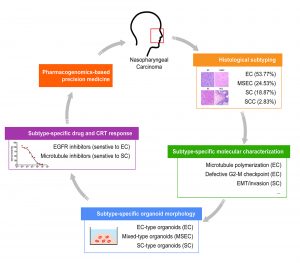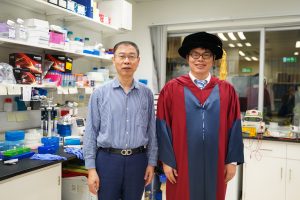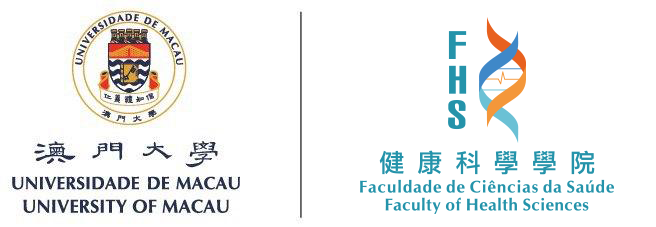Prof Chuxia Deng, dean of the University of Macau (UM) Faculty of Health Sciences (FHS), and his research team, have successfully developed a novel cancer precision medicine strategy by integrating tumour organoid culture, genome sequencing, and bioinformatic analysis in collaboration with Kiang Wu Hospital. This strategy is a new breakthrough in precision medicine and can provide personalised treatment suggestions for nasopharyngeal carcinoma (NPC) patients of different subtypes. The study has been published in the internationally renowned journal Nature Communications.
NPC is a highly prevalent type of cancer in Macao and South China. However, there has been little research on the mechanisms of cancer development and molecular subtyping, which results in a lack of precision medicine strategies in NPC therapy. Prof Deng’s team applied whole-exome genome sequencing to study the molecular subtyping of 106 NPC tumours, and found that each subtype of NPC tumours was driven by different mutational genes and pathways. The team also cultured the mini-tumours derived from individual patients using organotypic culture technology to investigate personalised drug sensitivity. The results revealed sensitive and resistant drugs for mini-tumours/organoids of different NPC subtypes. Based on the above findings, the team proposed a novel pharmacogenomics-based precision medicine approach for the treatment of NPC. The study points to a new direction for precision oncology and has important clinical significance.
In the past year, Prof Deng’s research team has achieved multiple major breakthroughs in cancer precision medicine, and has published a series of high-impact research articles in internationally renowned journals, including Nature Communications, Advanced Science, and Theranostics. In January this year, the university officially received approval from the Ministry of Education to establish the Frontiers Science Center for Precision Oncology.
The corresponding author of the related paper is Prof Deng. His PhD student Ding Renbo, postdoctoral fellows Chen Ping and Barani Kumar Rajendran, as well as research assistant Lyu Xueying are the co-first authors. The following individuals have also made important contributions to the study: FHS associate professors Xu Xiaoling and Shim Joong Sup, postdoctoral fellows Wang Haitao and Bao Jiaolin, Kiang Wu Hospital doctors Liu Shuiming and Chan Kin Iong, as well as Southwest Medical University Affiliated Hospital doctors Wu Jingbo and Yang Linglin. The study was funded by the Science and Technology Development Fund, Macao SAR (file number: 065/2015/A2, 094/2015/A3 , 0048/2019/A1 and 0011/2019/AKP) and UM (file number: CPG 2015-00016-FHS, MYRG2016-00139-FHS, MYRG2016-00132-FHS and MYRG2017-00113-FHS). The full version of the related paper can be viewed at: https://www.nature.com/articles/s41467-021-23379-3.

Prof Deng’s team has uncovered the differential driver molecular pathways and drug sensitivities of each NPC subtype.

Prof Chuxia Deng (left) and Ding Renbo

